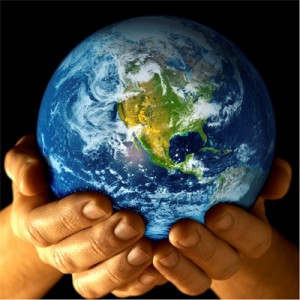
Rights are a formal codification of human freedom.
Rights state explicitly the fact that no other person or institution has rightful jurisdiction over the person or property of another.
Justice — also known as equity — is nothing more or less than the legal recognition of each and every individual’s right to her own life and her own property.
The Oxford Dictionary defines the term rights as, in part, “A justifiable claim, on legal or moral grounds, to have or obtain something, or to act in a certain way.”
Freedom is the absence of compulsion.
The primary thing that distinguishes the free person from the unfree person is voluntary action versus action that is compelled.
Compulsory taxation, for instance, means that you are not free to do whatever you wish with your own money, because the government may at any time legally compel you to give to government any amount it specifies.
Voluntary action hinges upon the principle of individual rights:
Are we each free to live as we choose, provided we do not infringe upon the equal rights of others?
Or not?
The most fundamental political question is this: Do we rightfully own ourselves, or do others rightfully have jurisdiction over us?
To ask that question is, I believe, to answer it.
America is the only country in the history of the world founded explicitly and principally upon the concept of individual rights.
At root, there’s really only one way to infringe upon another’s rights, and that is through the instigation of force. Quoting the 19th century political thinker Auberon Herbert:
Nobody has the moral right to seek his own advantage by force. That is the one unalterable, inviolable condition of a true society. Whether we are many, or whether we are few, we must learn only to use the weapons of reason, discussion, and persuasion…. As long as men are willing to make use of force for their own ends, or to make use of fraud, which is only force in disguise, wearing a mask, and evading our consent, just as force with violence openly disregards it – so long we must use force to restrain force. That is the one and only one right employment of force … force in the defense of the plain simple rights of property, public or private, in a world, of all the rights of self-ownership – force used defensively against force used aggressively (Auberon Herbert, The Principles of Voluntaryism, 1897).
As Auberon Herbert notes, force can be direct, as in assault and rape, or indirect, as in fraud or extortion. There’s no other way to breach rights than through the (direct or indirect) instigation of force.
Laws that restrict freedom of production and trade (such as cap-and-trade laws) are an indirect use of force.
Trade tariffs are an indirect use of force.
Military conscription is a direct use of force.
Rights, I repeat, are a formal codification of human freedom. This of course includes the freedom to trade.
Rights are ethical principles, and they are political principles. As such, rights delimit human freedom in large groups.
This latter thing is emphasized because rights would not need to be discovered if you lived alone, or even if you lived in a small and insular society.
Rights derive from three things: human individuation, human society, and the power of choice which gives rise to moral agency.
Rights are discoveries, not inventions.
One proof of this is found in the fact that the only alternative to acting by right is acting by permission. Whose permission?
Answering that question is where you’ll begin to glimpse the true nature of rights: if humans only act by permission, who gives permission to those whose permission the rest of us are acting under? And who gives permission to those above, and so on?
Answer: no one — because rights are inalienable in the literal sense: they are not granted, and they cannot be revoked or transferred.
In the final analysis, there’s only the right to your own life: all others – from liberty, to property, to the pursuit of happiness – are an extension of that one.
Those who hold that life is valuable, hold, by implication, that men ought not to be prevented from carrying on life-sustaining activities. In other words, if it is said to be ‘right’ that they should carry them on, then, by permutation, we get the assertion that they ‘have a right’ to carry them on. Clearly the conception of ‘natural rights’ originates in recognition of the truth that if life is justifiable, there must be a justification for the performance of acts essential to its preservation; and, therefore, a justification for those liberties and claims which make such acts possible (Herbert Spencer, The Man Versus the State, 1884).
The crux of freedom is rights.
The crux of rights is human individuation and moral agency.
A deep connection exists between the right to life and the right to property. The importance of this connection cannot be overstated, yet it is precisely this connection that the leftwing and rightwing are both equally ignorant of.
Quoting Claude Frédéric Bastiat:
Each of us has a natural right to defend his person, his liberty, and his property. These are the three basic requirements of life, and the preservation of any one of them is completely dependent upon the preservation of the other two. For what are our faculties but the extension of our individuality? And what is property but an extension of our faculties? … Man can live and satisfy his wants only by ceaseless labor, and by the ceaseless application of his faculties to natural resources. This process is property (Claude Frédéric Bastiat, The Law, 1848).
Property is “not only money and other tangible things of value, but also includes any intangible right considered as a source or element of income or wealth. The right and interest which a man has in lands and chattels to the exclusion of others. It is the right to enjoy and to dispose of certain things in the most absolute manner as he pleases” (Lectric Law Library).
That is precisely why the crux of freedom and free markets is private property.
It is also why environmentalism, as all other forms of socialism, is inherently anti-freedom.
The reason that laissez faire is the proper social system is not because it “works best,” as many nominal defenders of free markets never tire of telling us. Laissez faire is proper, rather, because it is just. Laissez-faire capitalism is the only economic system that respects and protects the inalienable right to life, liberty, property, and free exchange.
One must never forget: money is property. Money is the symbol of your labor.
The root of real wealth is production.
Compulsory (as opposed to voluntary) taxation is a breach of property rights. It is also, again in the words of Bastiat, “legalized plunder.”
Individual rights have been under siege since the moment they were first brought into the light. And yet they’ve remained remarkably resilient. The reason they’ve remained resilient is that they are in a certain sense self-evident: we each, as John Locke said, “have a property in our own person.”
That is the fundamental principle behind rights, and property is an extension of person, nothing more and nothing less.
If you believe in human freedom, you perforce believe in the freedom to trade – fully. For if humans are not allowed to trade freely, humans are not truly free.
No freedom or justice can exist if rights, including property rights, do not exist.
Indeed, the very word rights has its origins in ancient Roman law and is related to the Roman word jus, as in justice. According to historian J. Stuart Jackson, jus “is wider than that of positive law laid down by authority, and denotes an order morally binding on the members of the community.” In the Roman sense of the word, “right” meant “what is just.”
Rights entitle holders to certain freedoms – specifically, the freedom to act in a certain way. Notice the phrase “freedom to act”; it is a crucial distinction because rights do not assure you of anything except the freedom to try.
What, though, fundamentally, is the stuff of rights? Of what are they made of?
To begin with, rights are not primaries: they are second-order principles that derive from something deeper. And that something is a thing which is very specific within the human condition. It is the faculty of choice.
If human behavior were automatic, as it is with animals, there would be no question of rights because any action we undertook would not be chosen. Human action would be neither moral nor immoral but amoral, and rights would therefore not exist.
The grizzly bear who mauls the innocent child is not evil. The man who mauls the innocent child is.
Thus rights are the link between ethics and politics.
Which is why Herbert Spencer and other freethinkers regarded rights as “ethical-political precepts.”
Quoting Samuel Adams:
Among the natural rights are these: First a right to life, secondly to liberty, thirdly to property; together with the right to defend them in the best manner they can…. Rights are evident branches of, rather than deductions from, the duty of self-preservation, commonly called the first law of nature.
Rights are another of these things that everyone thinks he understands, but which in fact almost nobody does.
To get some idea of how poorly understood the nature of rights is, one need only look at the United Nations Universal Declaration of Human Rights and observe the sheer number of times one would have to breach the rights (usually in the form of property expropriation – i.e.: “Everyone has the right to rest and leisure, including reasonable limitation of working hours and periodic holidays with pay”) of some individual somewhere to achieve even a fraction of that Declaration’s stated goals. The UN’s Declaration of Human Rights is a tour-de-force of postmodern, multicultural, neo-Marxist non-thought.
Leftwingers tell us we have the right to healthcare, the right to a job, the right to a smoke-free work environment, and so on.
Rightwingers, on the other hand, say we do not have the right to open our liquor stores on Sunday, we do not have the right to consensual sex with prostitutes, we do not have the right to gamble, et cetera.
Despite what you’ve been told, these views are not opposites; they are a variation on an identical theme, and their common denominator is this: Humans do not possess the inalienable right to life and property, and government bureaucrats are better suited than we ourselves to tell us how we must live. Yet the fact is, there is nothing in nature, neither human nature nor nature apart from humans, that gives government bureaucrats legitimate authority over the person or property of any other human being.
To say that we have the “right to healthcare,” or the “right to a job,” or the “right to a smoke-free work environment” is the same as saying we have the right to the life, labor, and property of another, which we do not and cannot – by virtue of what rights are.
Rights by definition preclude any claim to the person and property of another, even if that person is a doctor.
To say that humans do not have the right to open their liquor stores on Sunday if they choose, or to say that humans do not have the right to have consensual sex with prostitutes if they choose, or to say that humans do not have the right to gamble and use drugs if they choose, is the same as saying your life is not yours by right but belongs in some measure to bureaucrats, and that humans to that extent exist only by those bureaucrats’ permission — this in spite of the fact that no government and no governmental bureaucracy in the history of the world has ever proved itself more capable of running the individual’s life better than the individual herself.
Government compulsion, rightwing or left, is the antithesis of individual rights.
There is no such thing as a “collective right,” not in any variation.
Rights, by definition, can only belong to the individuals who make up any “collective.”
That is why the very term individual rights is pleonastic in the ultimate purport, albeit necessarily so: the very definition of the word presupposes individual, since it is only individuals who can properly possess rights.
Quoting George Reisman, who is echoing his friend and mentor Ludwig von Mises:
Only individuals exist; collectives consist of nothing but individuals. Only the individual thinks; only the individual acts; only the life of the individual has value and is important. All rights are rights of individuals.
As it happens, there’s an absolutely foolproof method that exists for determining if something is a right or not:
Your rights, my rights, everyone’s rights stop where another’s begin.
If you follow that simple principle, and if you remember that property is nothing more than an extension of person, and that money is also property, you’ll never confuse the issue of rights.
[This article appeared, in a slightly altered form, in Chapter 30 of my book].
 In a recent interview with CNN’s Piers Morgan, socialist documentarian Michael Moore — who, not coincidentally, made a socialist propaganda movie called Capitalism: A Love Story — revealed Monday (September 27th, 2011) what we all already knew: he has no understanding whatsoever of what capitalism really is.
In a recent interview with CNN’s Piers Morgan, socialist documentarian Michael Moore — who, not coincidentally, made a socialist propaganda movie called Capitalism: A Love Story — revealed Monday (September 27th, 2011) what we all already knew: he has no understanding whatsoever of what capitalism really is. 





